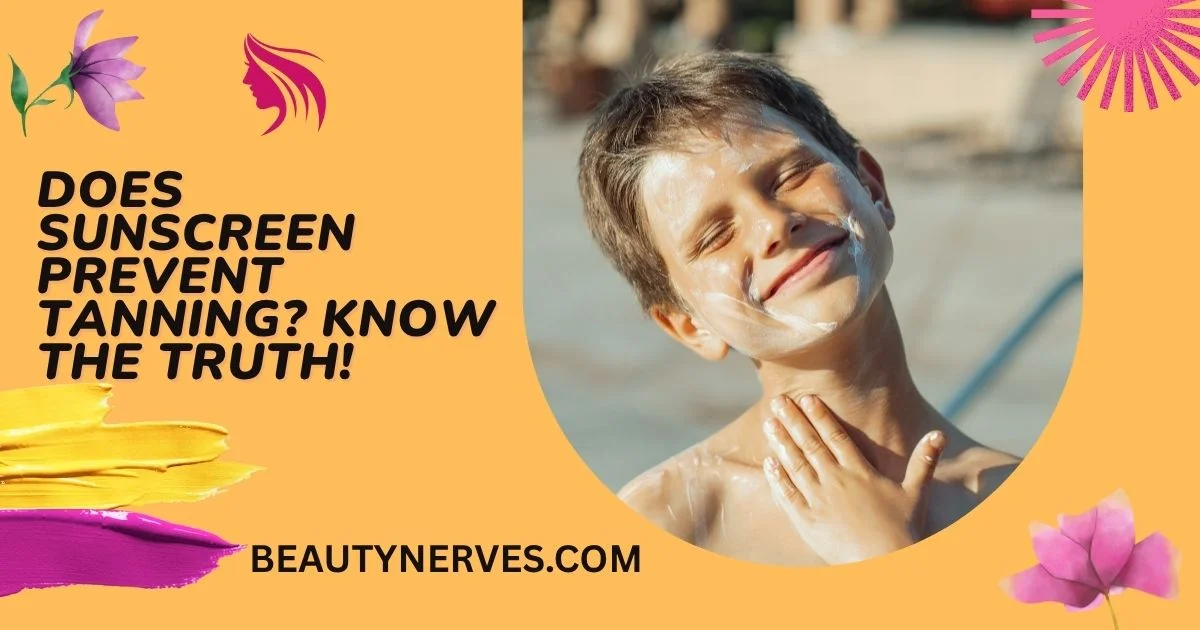Sunscreen has always been a part of my routine, but I never really understood how much it impacts tanning. I’ve spent countless hours in the sun, assuming that a good layer of sunscreen would be enough to keep my skin safe without changing its tone.
But over time, I noticed that I still got a tan, despite using SPF 50. That led me to wonder: Does sunscreen really prevent tanning, or is it just a myth?
This question sent me on a mission to figure out what sunscreen can—and can’t—do when it comes to protecting our skin from the sun’s rays.
Table of Contents
My Friend Emily’s Quest: Does Sunscreen Really Prevent Tanning?
Emily, a beach enthusiast, always wondered if sunscreen could truly stop her from tanning. She faithfully applied SPF 50 sunscreen but still noticed her skin darkening each summer.
After researching different sunscreen types and their actual effects on tanning, Emily found the best sunscreen to prevent tanning. With her new discovery, she was able to enjoy the sun without worrying about unwanted tans.
Sunscreen or Sunblock: What’s Best to Prevent Tanning?
When it comes to protecting your skin, the terms sunscreen and sunblock often get mixed up. Sunscreen absorbs UV rays and prevents them from penetrating your skin, while sunblock physically blocks UV rays from reaching your skin. Sunblock tends to offer more effective protection for tanning prevention because it creates a thicker layer over your skin.
However, sunscreen, with the right SPF, still provides great defense. If you’re aiming to avoid tanning, look for a sunscreen with broad-spectrum protection, meaning it shields you from both UVA and UVB rays. Always check the SPF level. The higher the SPF, the better your protection.
Can You Tan with Sunscreen SPF 50? Here’s What You Need to Know
SPF 50 sounds like a high level of protection, but can you still tan with it? The short answer: yes, you can. SPF 50 blocks about 98% of UVB rays, but not all of them. While it significantly reduces your chances of tanning, it doesn’t guarantee total protection.
That’s why reapplying sunscreen every two hours is so important. If you’re sweating or swimming, it’s even more crucial. Sunscreen doesn’t block every UV ray—it’s all about reducing exposure. Keep in mind, SPF 50 can still let some rays through, so it’s essential to stay diligent with your sunscreen routine.
How Does Sunscreen Prevent Tanning on Your Face?
The skin on our face is more sensitive and thinner than the rest of our body, which is why it tans faster. Facial sunscreens are designed to protect this delicate area better. Sunscreen on the face acts as a shield, blocking harmful UV rays that can lead to darkening of the skin.
However, the face tends to get more sun exposure than other parts of the body, so sunscreen needs to be applied more frequently. It’s also essential to use a sunscreen formulated for the face, as it tends to be lighter and less likely to clog pores. If you want to avoid a tan, make sure to apply sunscreen generously to your face and reapply often.
Can You Tan with Sunscreen SPF 30? Uncovering the Truth
SPF 30 is a popular choice for many, but does it really stop tanning? SPF 30 blocks about 97% of UVB rays, which is a solid level of protection for most people. However, compared to higher SPFs, it doesn’t offer as much coverage.
For those with fair skin, SPF 30 may not be enough to fully prevent tanning after extended sun exposure. In real life, I’ve noticed that using SPF 30 helps reduce my tan, but I still get a slight bronze glow after a day at the beach. It’s a good balance, but if you’re prone to burning, you might want to go higher.
Does Sunscreen Expire? Keep Your Skin Safe from Tanning
Using fresh sunscreen is key to protecting your skin. Sunscreen has an expiration date for a reason—its effectiveness decreases over time. If you use expired sunscreen, it won’t provide the full protection it should, which can lead to tanning or even sunburn.
Always check the expiration date before applying. To make sure you’re covered, store your sunscreen in a cool, dry place and keep track of when you bought it. Expired sunscreen could leave you unprotected, increasing your chances of getting a tan or even a burn.
Author

I’m Jennifer Adam, a beauty and fashion expert who loves sharing exciting stories about style. I help brands connect with people through creative ideas and advice. When I'm not working, I enjoy trying new skincare routines and staying updated on the latest fashion trends.
View all posts



